Holiday foods often get a bad rap for being too rich. Still, many of them are actually healthier than you’d expect. These dishes bring more to the table than just comfort — they pack in plenty of goodness that can be easy to miss when we’re caught up in the holiday hustle. So, as you enjoy your favorites, it’s nice to know they’re not just delicious but can be part of a balanced approach to celebrating.
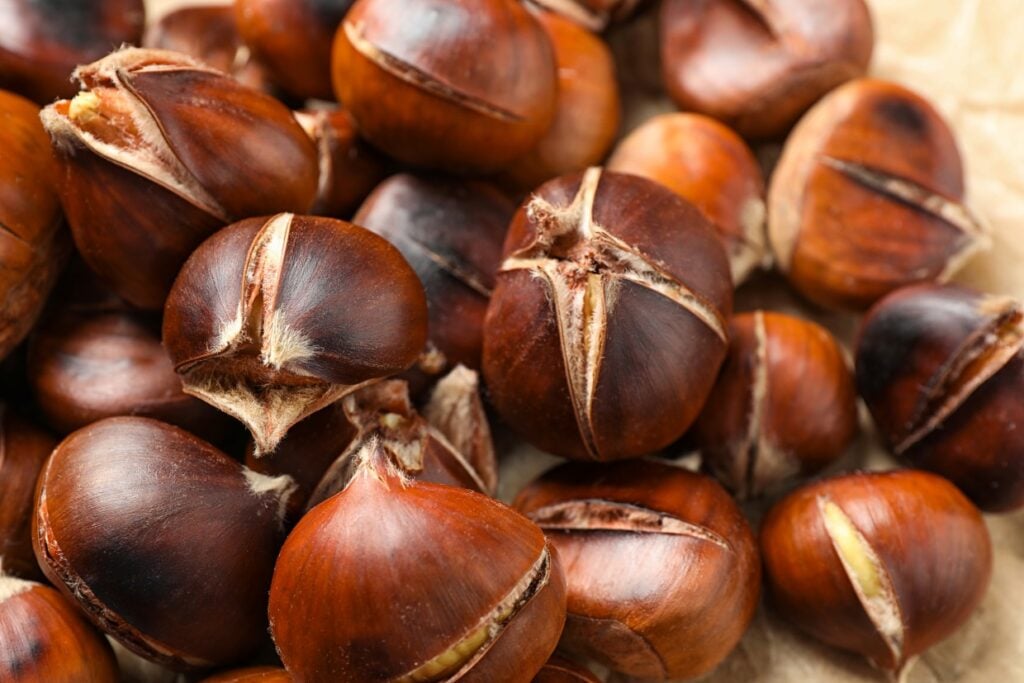
Nutmeg
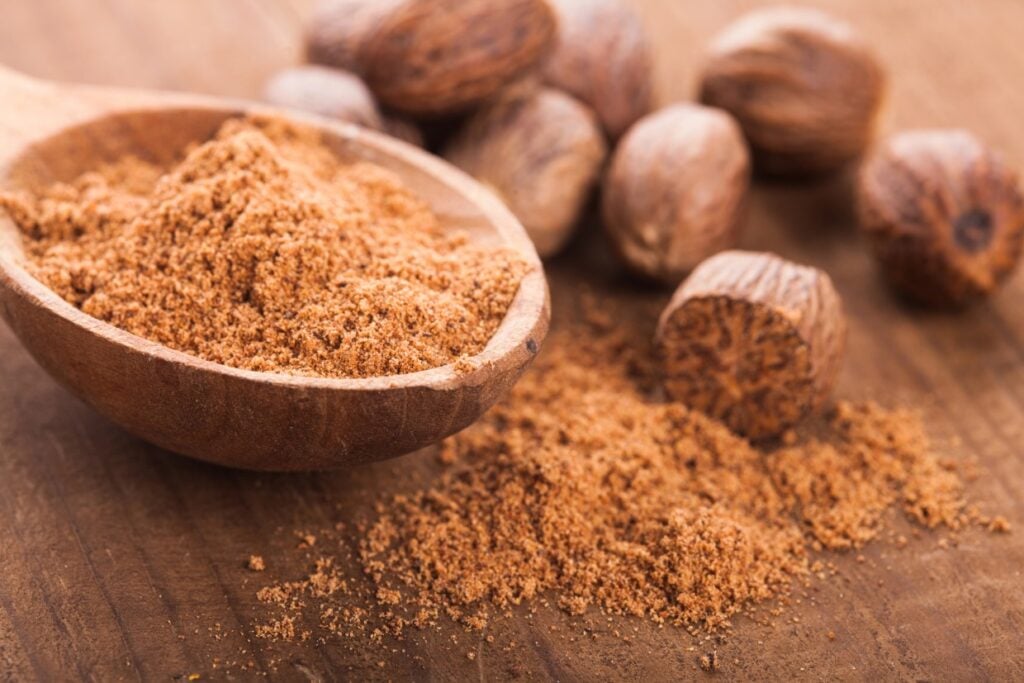
Nutmeg is another holiday favorite, often added to sweet dishes and drinks like eggnog. However, it’s also known for its medicinal properties, including its ability to aid digestion and promote better sleep. A pinch is all you need to enjoy the flavor and benefits without going overboard.
Get a recipe with nutmeg: Overnight Apple Pie Oats.
Beef brisket
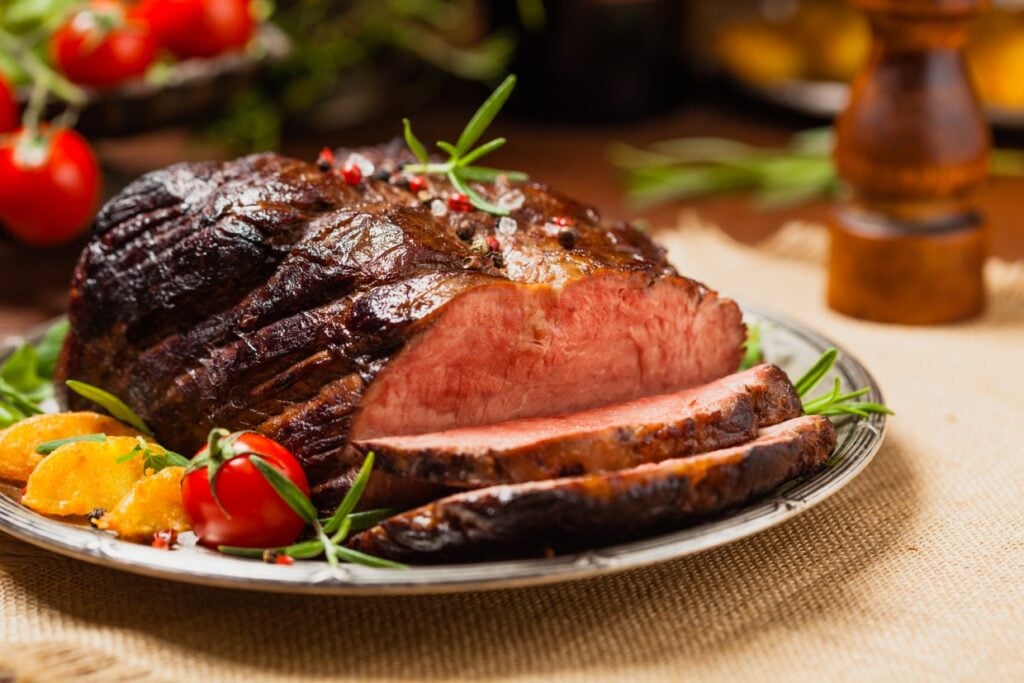
Beef brisket is rich in protein, iron, and B vitamins, which are great for energy and muscle health. The key is to choose leaner cuts and slow-cook the meat to retain its nutrients without adding extra fats. Instead of slathering it in heavy sauces, go for a simple rub with herbs and spices. Keeping your portions around 3 to 4 ounces (roughly the size of a deck of cards) will give you the nutritional benefits without feeling too heavy.
Blintz

Blintzes, especially when filled with cottage cheese or ricotta, can be a surprising source of protein and calcium, great for bone health. For a lighter version, try baking instead of frying them and use whole-grain or buckwheat flour for an extra fiber boost. If you’re topping with fruit, skip the sugary syrups and stick with fresh or lightly stewed fruit. A single blintz is often hearty enough, making it easier to stick to a reasonable portion size.
Cranberries
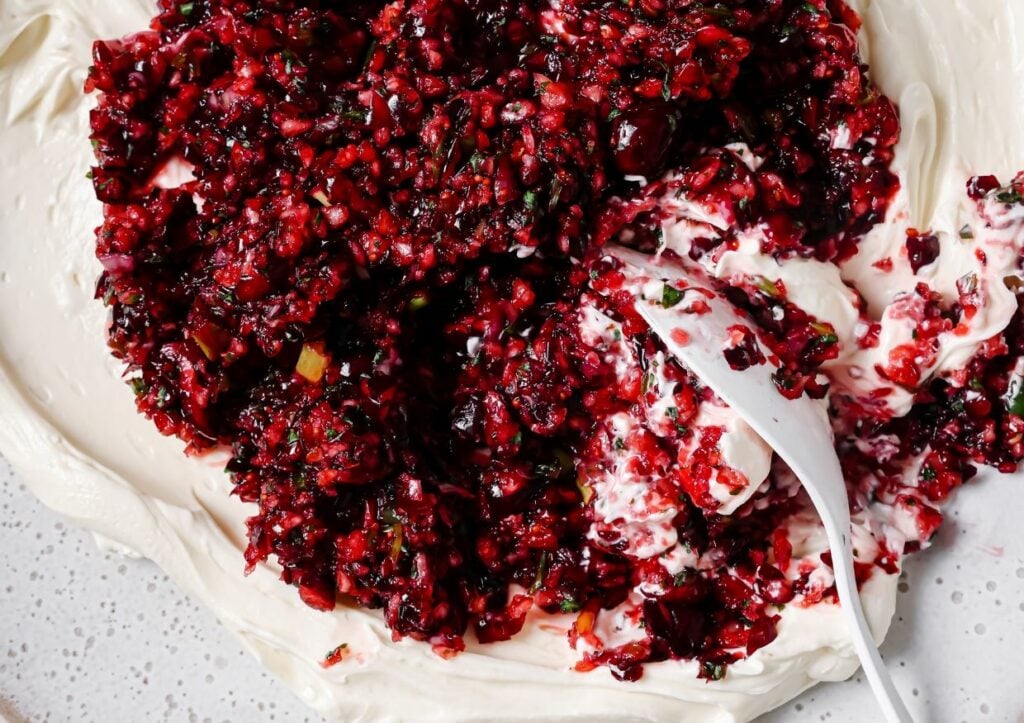
Cranberries are rich in antioxidants and vitamin C, which can be great for your immune system. While fresh cranberries can be tart, you can sweeten them naturally with honey or orange juice instead of adding sugar. A quarter cup of cooked cranberries as a side or topping is enough to get the benefits without going overboard.
Dates
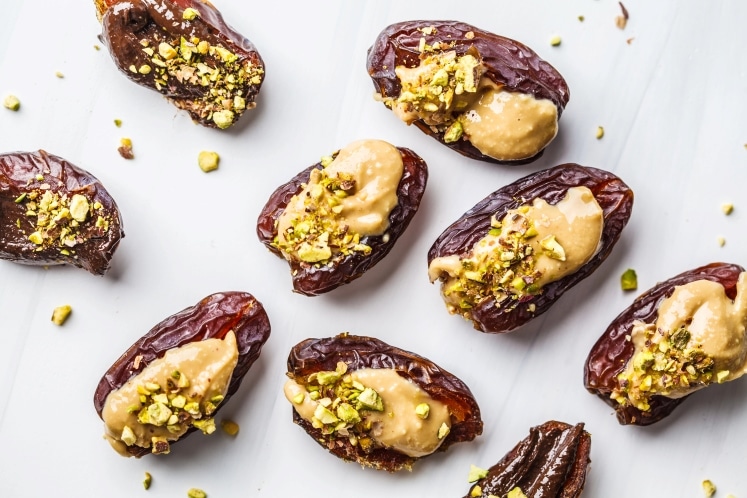
Dates are naturally sweet and high in fiber, which supports digestion. They’re also loaded with essential nutrients like potassium and magnesium. Use them in holiday baking as a natural sweetener, or stuff them with nuts for a festive snack. A couple of dates can satisfy a sweet tooth without the need for added sugars.
Duck

While it’s often considered indulgent, duck can be surprisingly nutritious. It’s rich in protein, iron, and zinc, and if you remove the skin, it becomes a much leaner option. Duck also provides healthy fats, particularly omega-3s, which are beneficial for heart health. Roasting or grilling it with herbs keeps the flavor intact without adding unnecessary fats. A small portion, around 3-4 ounces, provides plenty of nutrients without overwhelming your plate. Duck can be a great alternative to turkey or ham for a holiday meal.
Potatoes
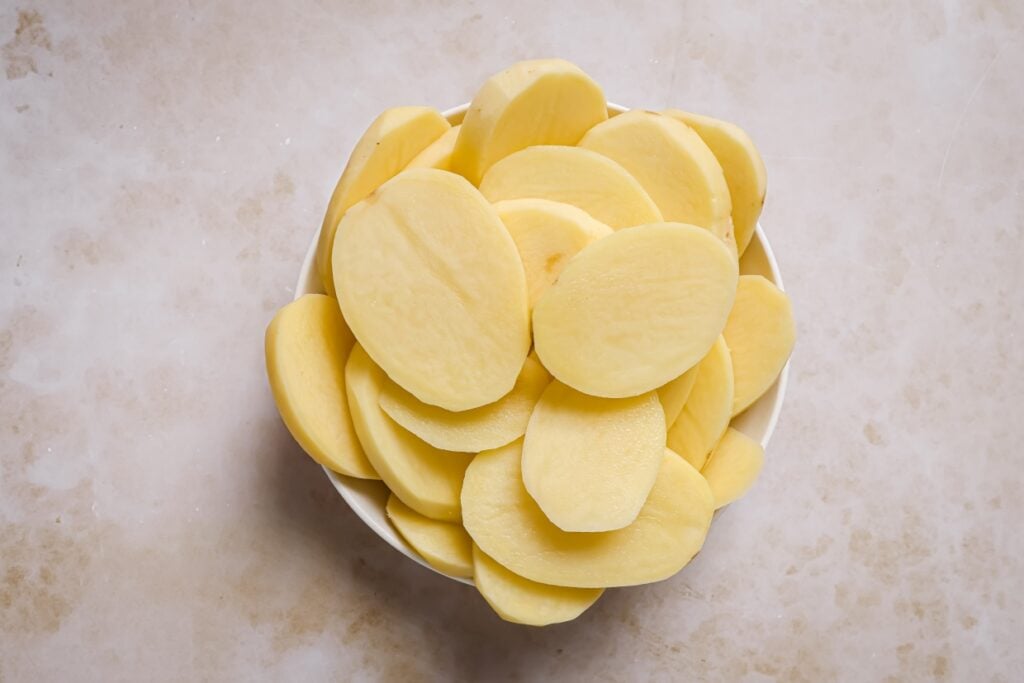
Potatoes are often misunderstood as unhealthy due to popular high-calorie preparations like frying or adding butter and cream. However, they are a great source of potassium, fiber, and vitamin C. Try roasting them with the skin on to retain nutrients and cut down on added fats. A portion about the size of your fist gives you a satisfying, nutrient-dense side without feeling weighed down.
Get a potato recipe: Parmesan Crusted Potatoes.
Chestnuts
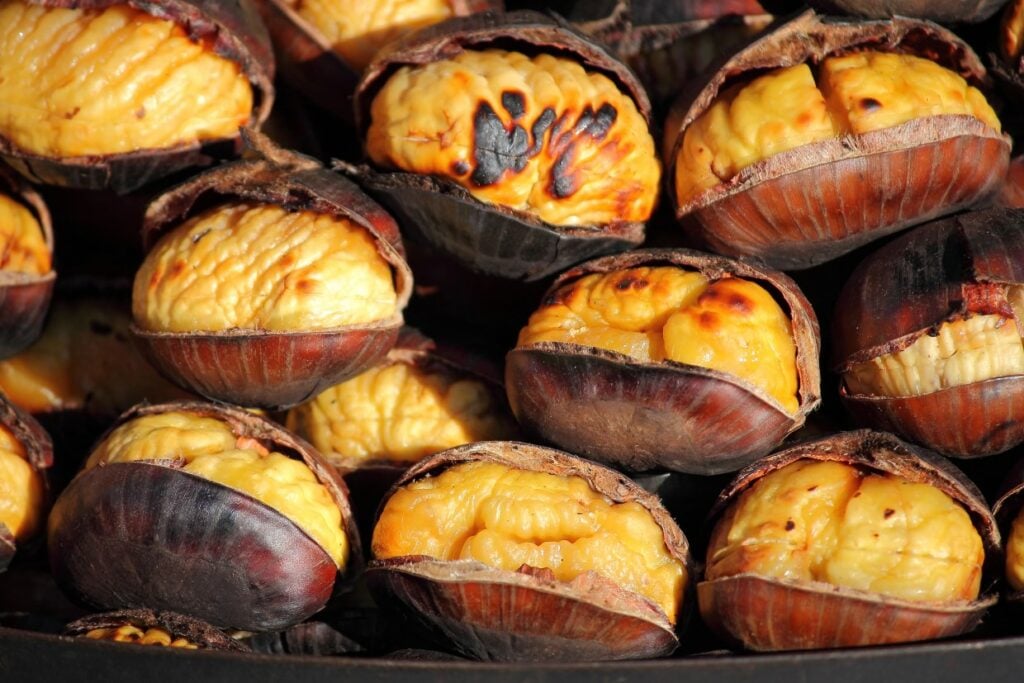
Chestnuts are packed with fiber and vitamin C, making them a smart choice for holiday snacking. Unlike other nuts, they’re lower in fat and calories, which is great for maintaining balance. Instead of sugar-glazing or frying them, roast chestnuts to keep their nutrients intact. Watch your portions by sticking to a small handful — this keeps the benefits without overdoing it.
Cheese

Cheese is rich in calcium, vitamin A, and protein, which support bone health. However, it’s also important to watch out for the sodium content, especially with hard cheeses like cheddar. Limiting portions to an ounce or two helps keep things balanced. Grating cheese instead of slicing can make you feel like you’re getting more while using less. Pair it with whole-grain crackers or fruit for a healthier holiday snack.
Pumpkin
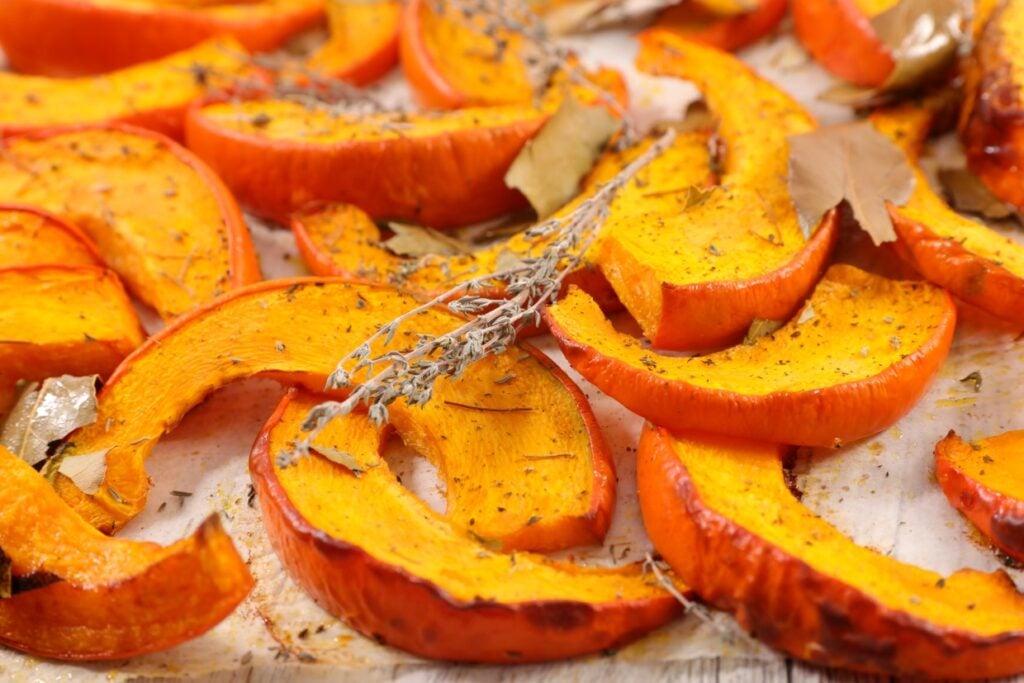
Pumpkin is packed with vitamins A and C, which are great for immune health. It’s also high in fiber, making it great for digestion. When preparing, skip the pie and try roasting the pumpkin or making a soup to keep it lighter. You can also use pumpkin puree instead of butter or oil in baking to lighten up your recipes. Keep servings reasonable — a quarter to half-cup portions can keep things balanced while enjoying its benefits.
Get a pumpkin recipe: Pumpkin Soup with Canned Pumpkin.
Cruciferous vegetables
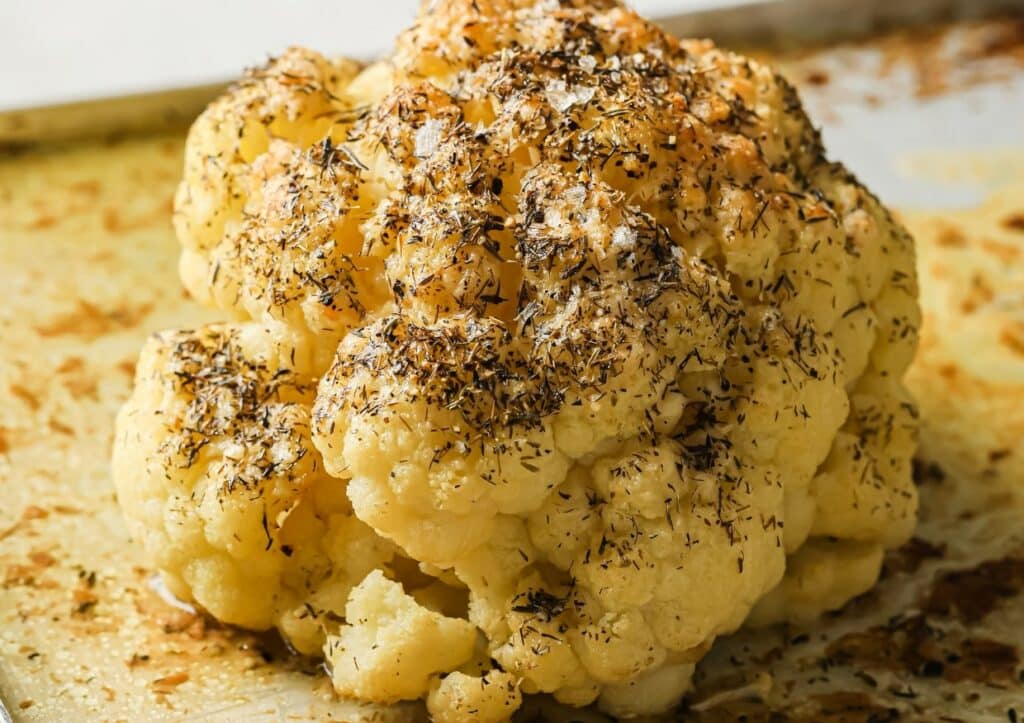
Cruciferous vegetables like broccoli, cauliflower, and Brussels sprouts are packed with fiber, vitamins C and K, and antioxidants. These veggies are perfect for supporting digestion and boosting your immune system. Rather than overcooking them, try steaming or roasting them with a light drizzle of olive oil to maintain their nutrients. Fill up half your plate with these veggies to stay balanced without worrying about overeating.
Eggs

Eggs are a great source of protein, vitamin D, and B vitamins, which help keep energy levels up during the holiday season. Hard-boiling or poaching eggs is a much healthier preparation than frying. One or two eggs are enough to keep the portions in check and give you the nutrition without going overboard. With so many health benefits, eggs definitely deserve a spot on your holiday table. They can be a great addition to holiday breakfast spreads or as appetizers in deviled egg form for Thanksgiving and Christmas meals.
Get a recipe with eggs: Bacon Egg and Cheese Breakfast Sliders.
Cinnamon
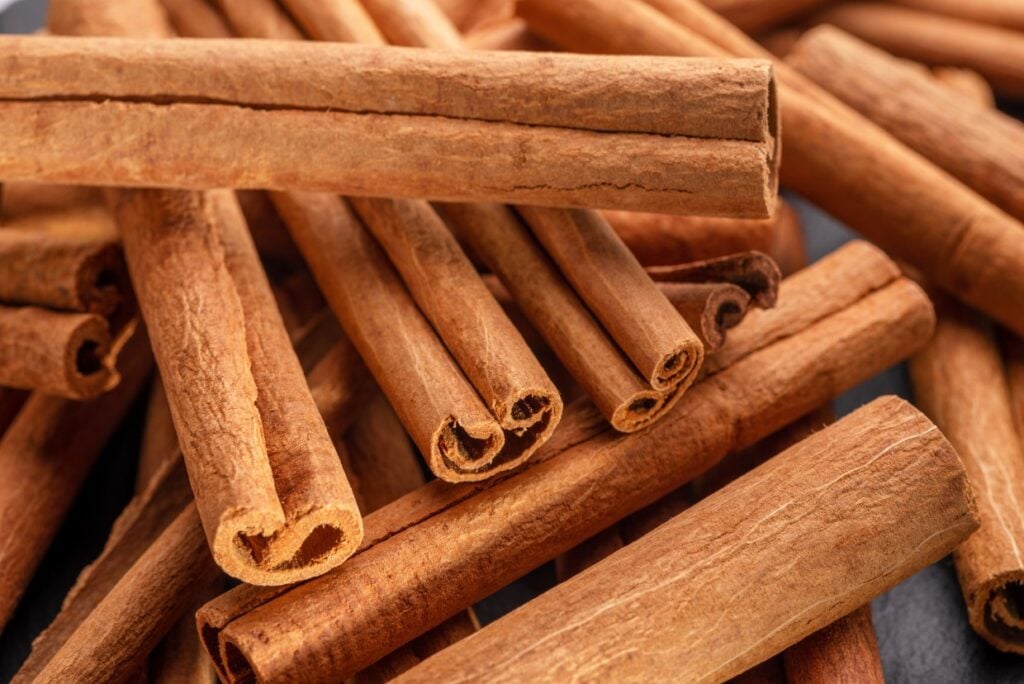
Cinnamon is a common spice during the holidays, often used in desserts and drinks, but it also offers health benefits. It’s rich in antioxidants and has anti-inflammatory properties. It can help regulate blood sugar levels when used in moderation. Add a sprinkle of cinnamon to oatmeal or roasted fruits for a festive and healthy twist.
Sweet potatoes
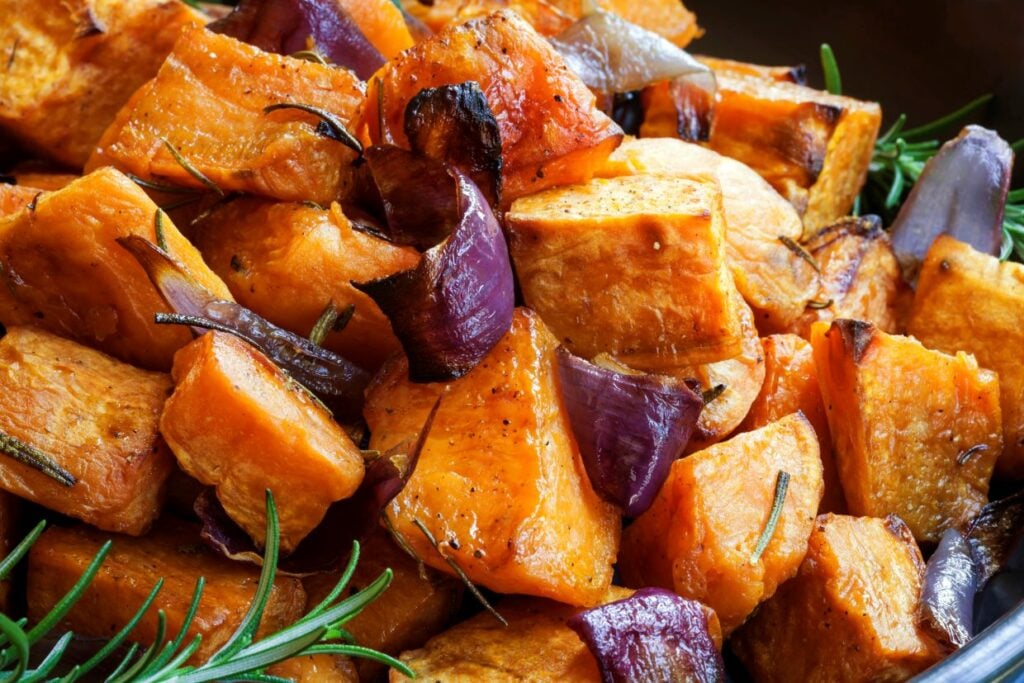
Sweet potatoes are packed with fiber and beta-carotene, which your body turns into vitamin A, making them great for eye health. Instead of marshmallows and sugar, try roasting or mashing sweet potatoes with olive oil and herbs. Keep your portions to about a half cup to enjoy the sweet, earthy flavor without loading up on extra calories.
Get a sweet potato recipe: Sweet Potato and Red Pepper Soup.
Nuts
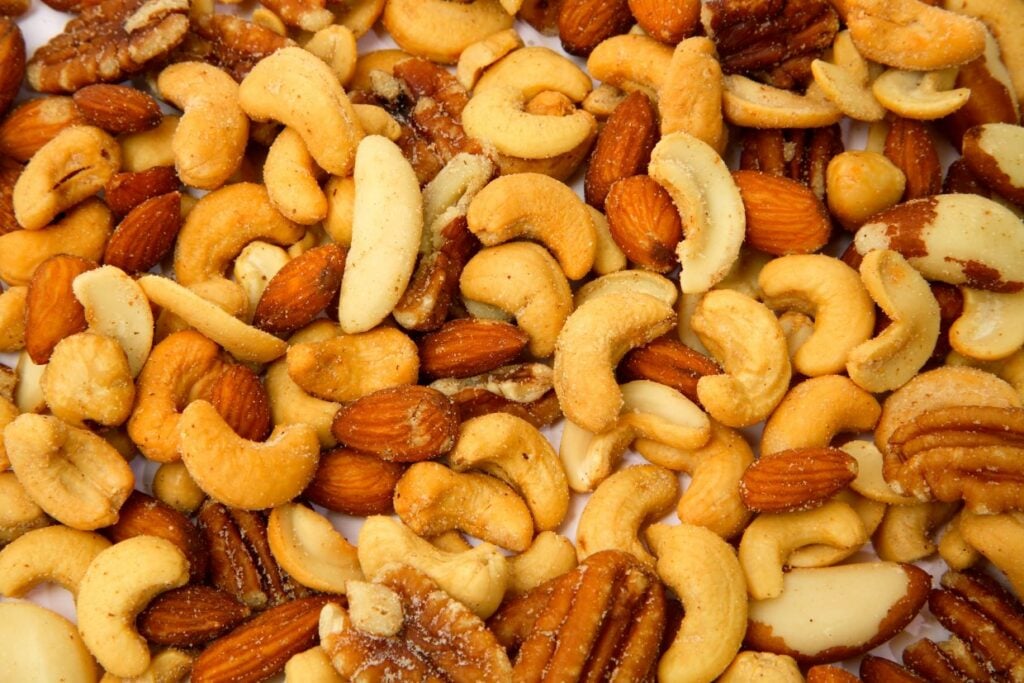
Almonds, walnuts, and other nuts are packed with healthy fats, protein, and fiber. They also contain vitamin E, which is good for your skin. Roasting them without extra oils or salt keeps their nutritional value intact. A small handful is enough to enjoy their benefits without going overboard on calories. They’re great as snacks during holidays like Christmas or as an addition to holiday dessert spreads.
Dark chocolate
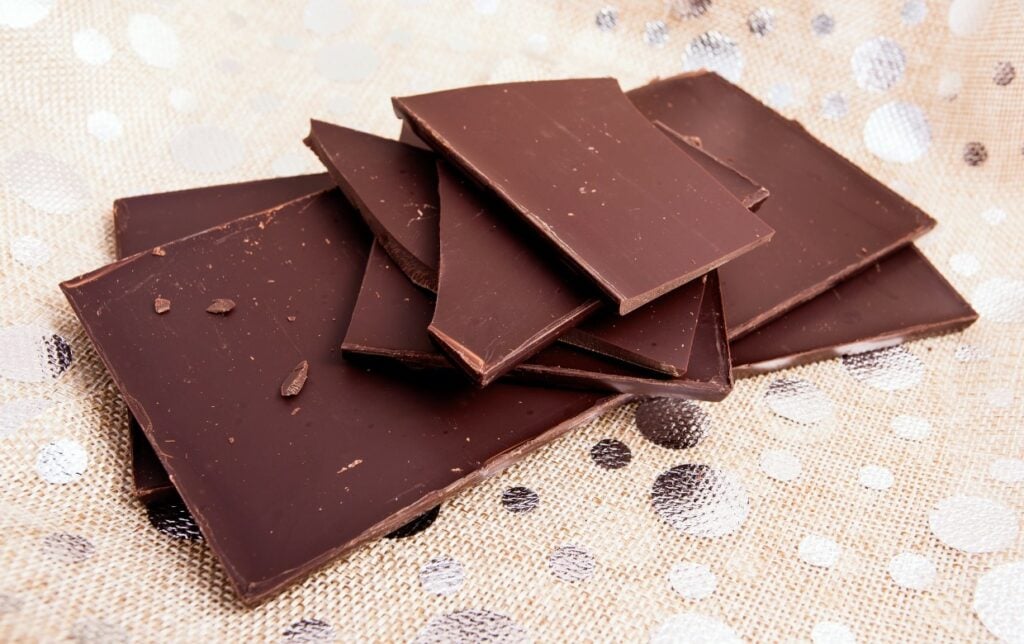
Dark chocolate contains antioxidants that support heart health, plus a good amount of iron and magnesium. However, even dark chocolate can vary in sugar levels, so look for varieties with at least 70% cocoa and minimal added sugars. A small square or two can give you the rich flavor and health benefits without too much sugar.
Shrimp cocktail
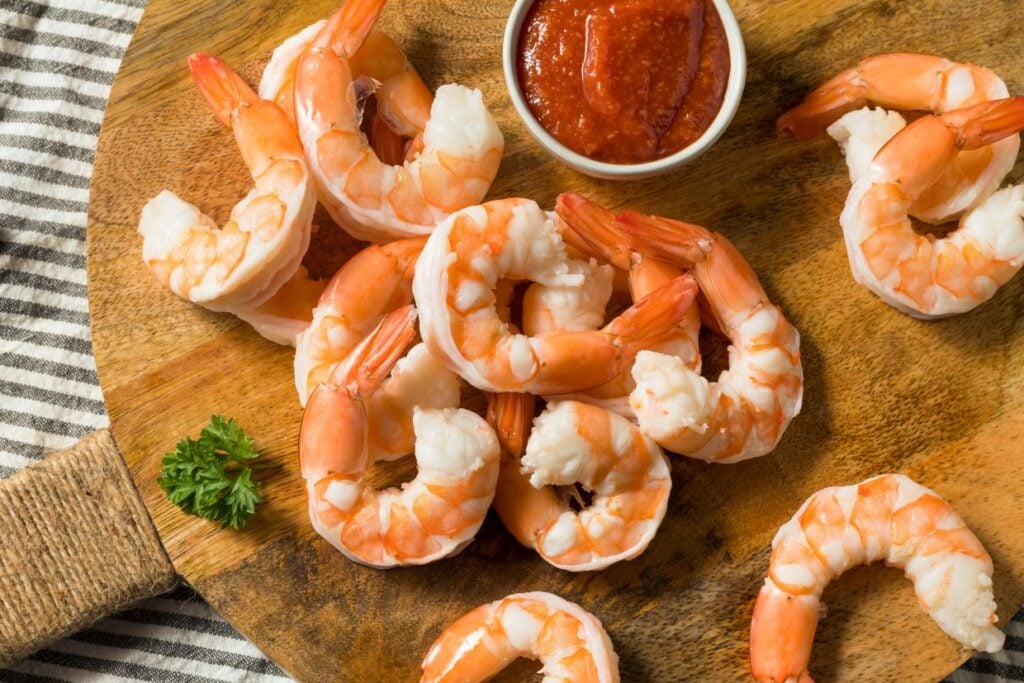
Shrimp is a low-calorie, high-protein food that’s rich in selenium and vitamin B12. Steaming or boiling shrimp instead of frying them is a great way to keep them light while still getting all the health benefits. Stick to about 4-6 shrimp per serving for a perfect portion, and skip the heavy sauces in favor of lighter options like a simple squeeze of lemon. Shrimp Cocktail is a great addition to a holiday spread because it’s light, easy to serve, and adds a touch of elegance without being too heavy — perfect for balancing out richer dishes.
Apple pie
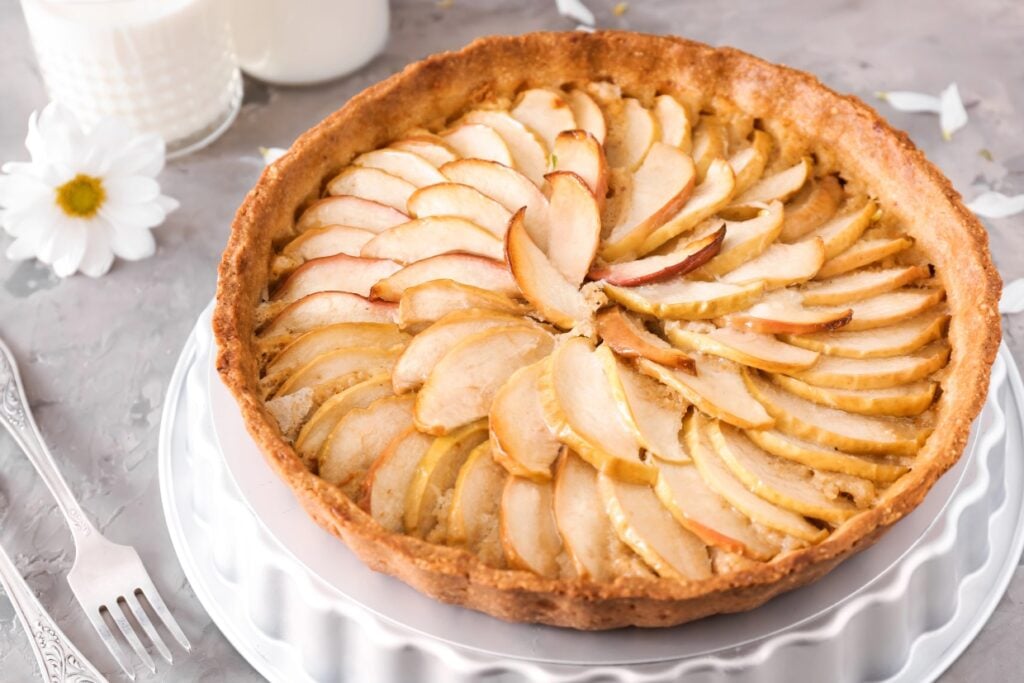
Apple pie can be surprisingly healthy when made right. Apples are packed with fiber, vitamin C, and antioxidants that support your immune system. To keep it healthier, try using a whole-wheat crust and cut back on the sugar by relying more on the natural sweetness of the apples. Bake instead of frying to keep it lighter. A small slice goes a long way — try sticking to a portion about the size of your palm to enjoy the flavors without going overboard.
Potato latkes

Potato latkes can actually pack in some good nutrients like potassium and fiber from the potatoes. To keep them lighter, try baking instead of frying, or use a mix of sweet potatoes for added vitamins A and C. Swapping regular flour for whole wheat or almond flour can also boost the fiber content.
Butternut squash
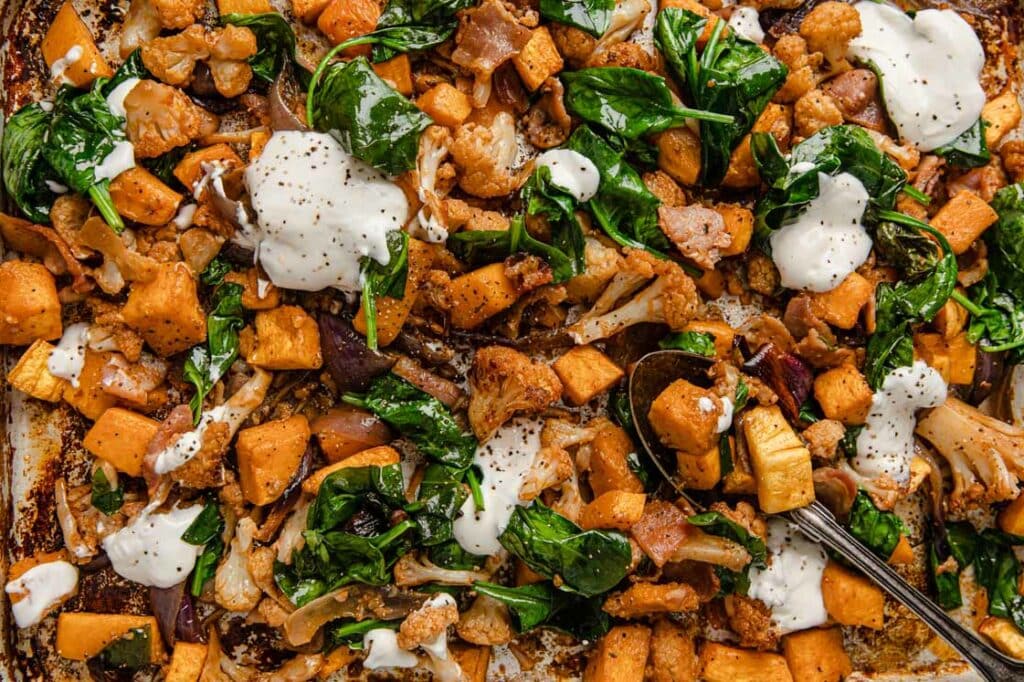
Butternut squash is full of vitamins A and C and fiber to help digestion. It’s often roasted or mashed, but you can skip the butter and brown sugar by roasting it with cinnamon or black pepper for a flavorful version. This squash fits perfectly into a Christmas or Thanksgiving meal, adding a colorful, nutrient-packed side. Stick to a serving about the size of your fist to keep portions in line with the rest of your spread.
Get a recipe with butternut squash: Roasted Cubed Butternut Squash with Cauliflower and Bacon.
Pomegranates
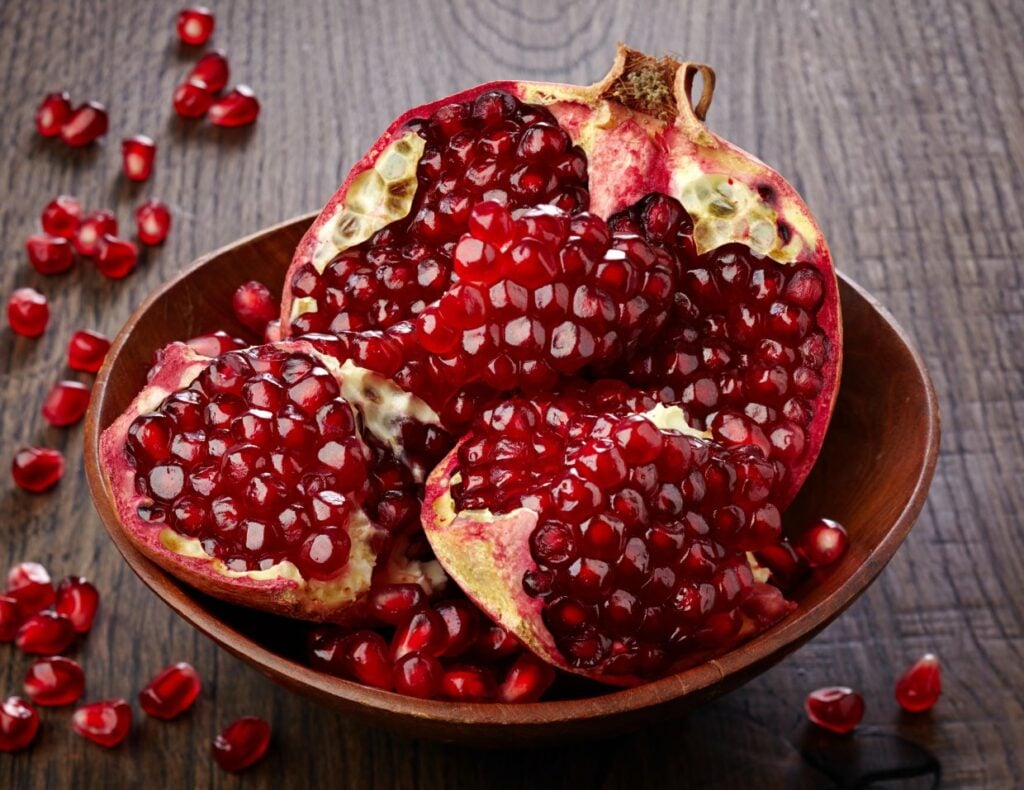
Pomegranate seeds are packed with antioxidants, vitamin C, and fiber. They make a great addition to salads or as a light snack. Whether you toss them into a salad or sprinkle them on yogurt, they add festive color and flavor. Stick to a quarter-cup serving to enjoy its benefits without going overboard on the natural sugars. These seeds make a great addition to holiday salads for Christmas or New Year.
Whole grains
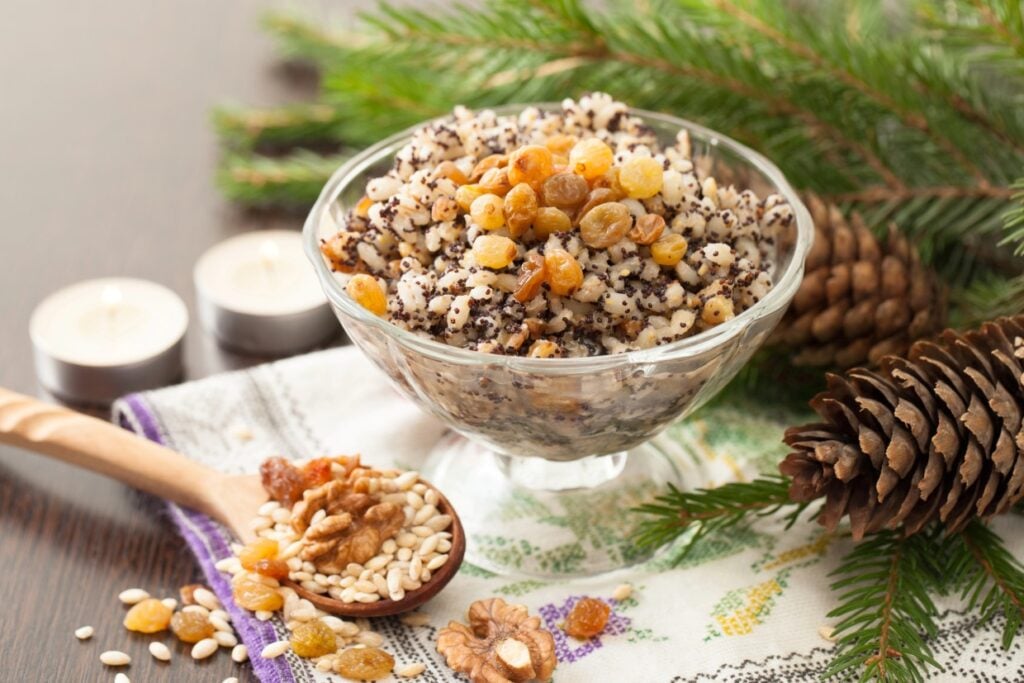
Whole grains are a great source of fiber, which keeps your digestion in check and helps you stay full. They also have B vitamins that support energy levels. When preparing holiday dishes with whole grains like quinoa or brown rice, choose boiling or steaming over frying to keep the nutrients intact. Stick to moderate portions by aiming for a serving the size of your fist to keep things balanced without overdoing it.
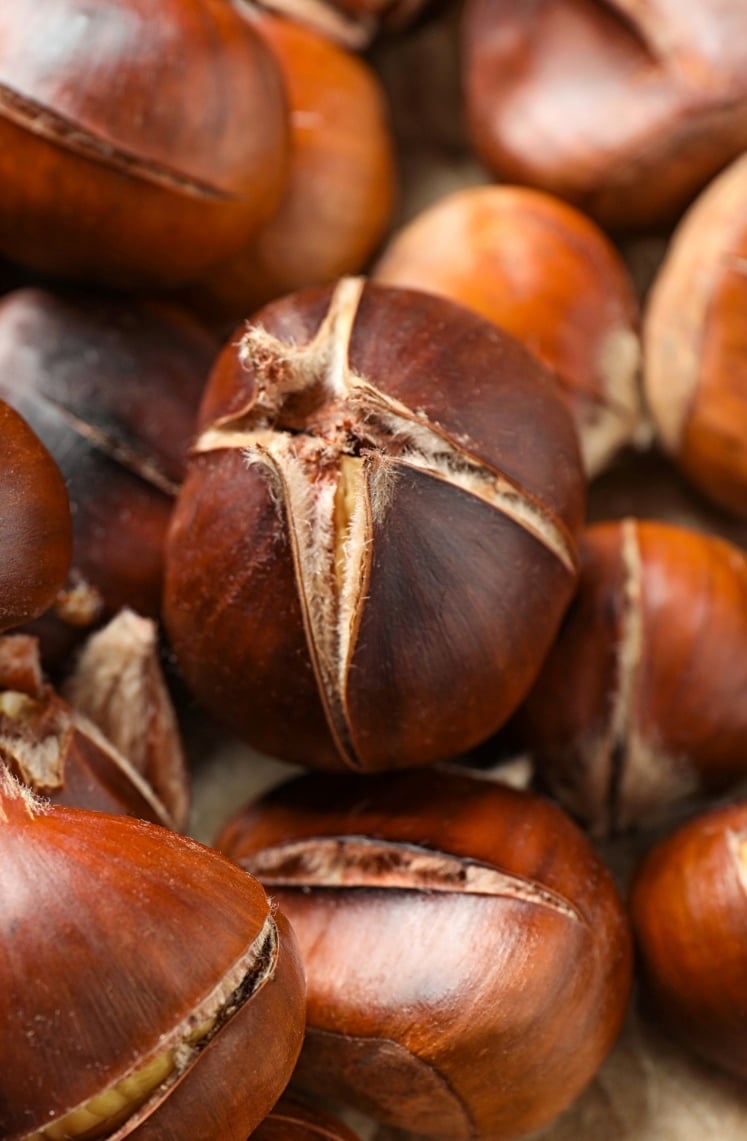
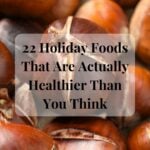


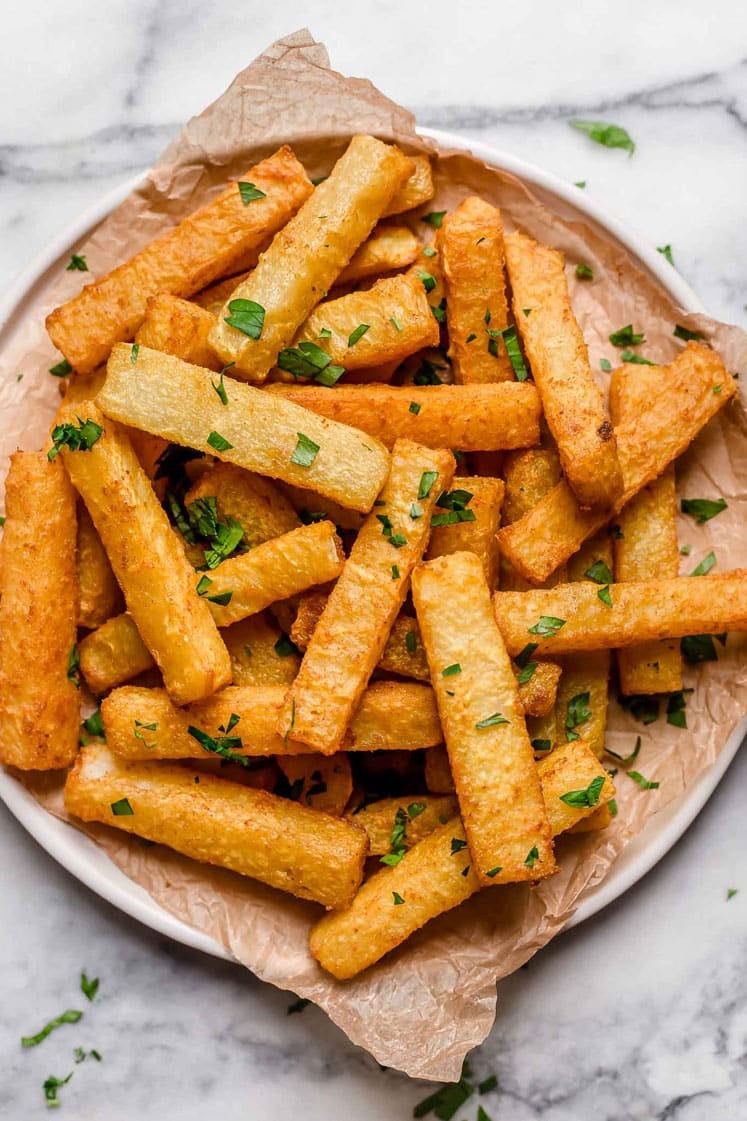
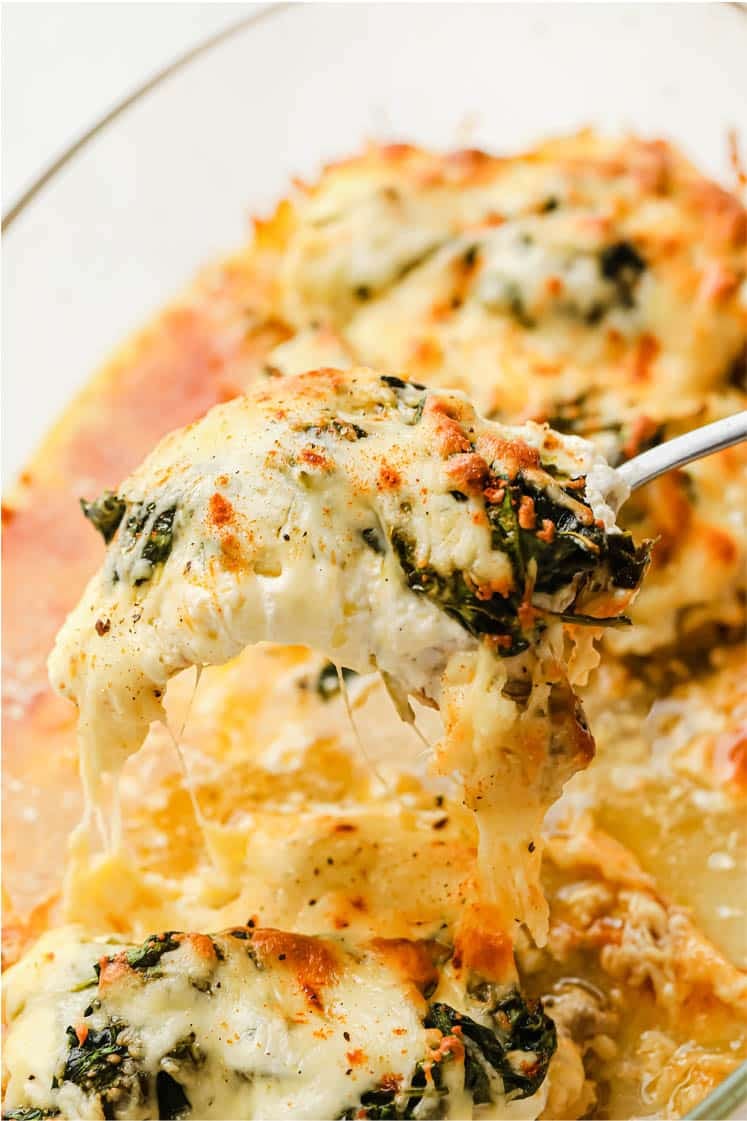
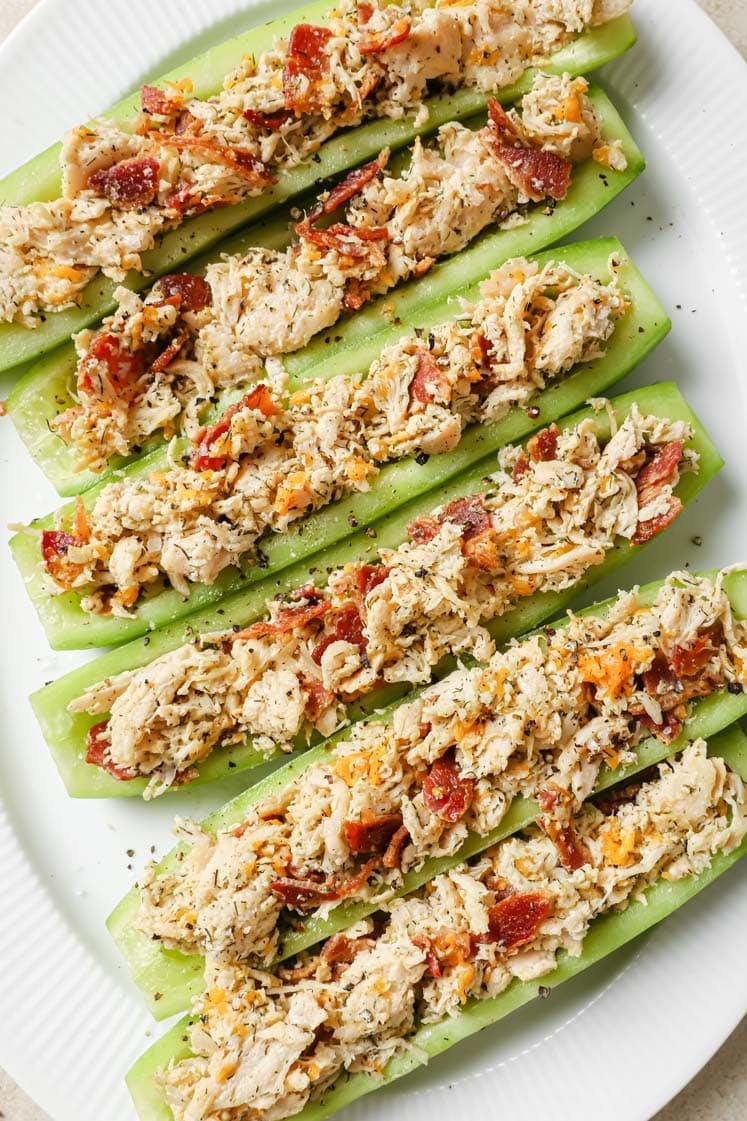
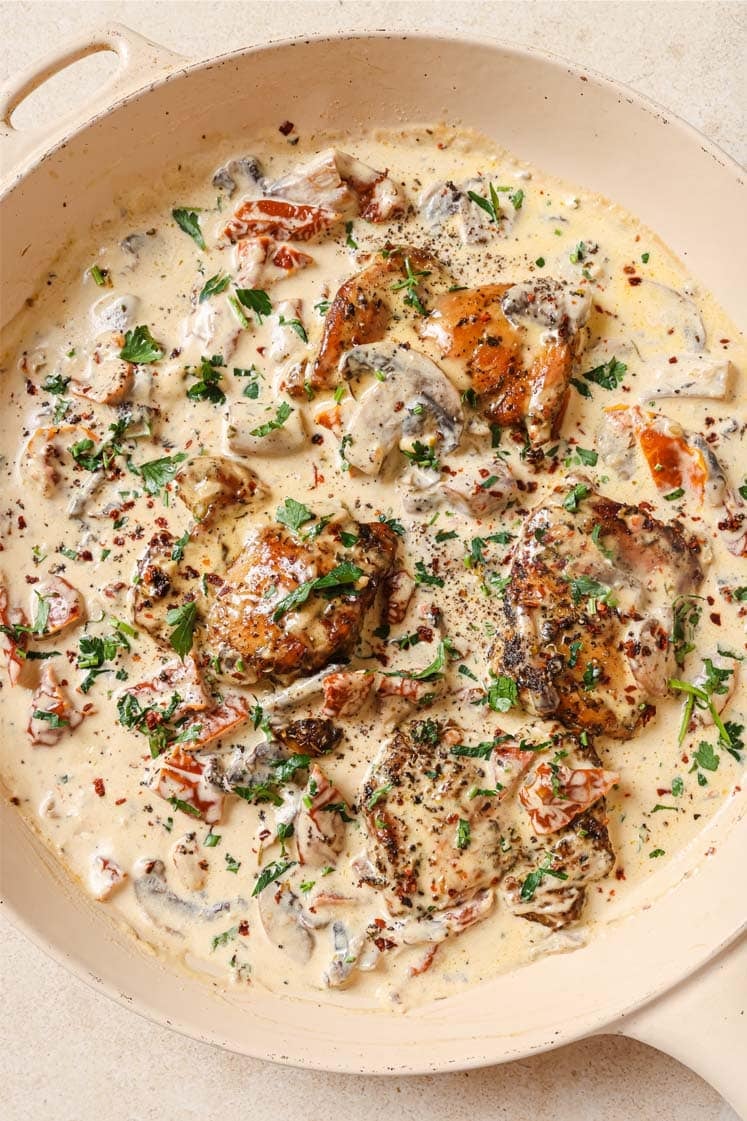

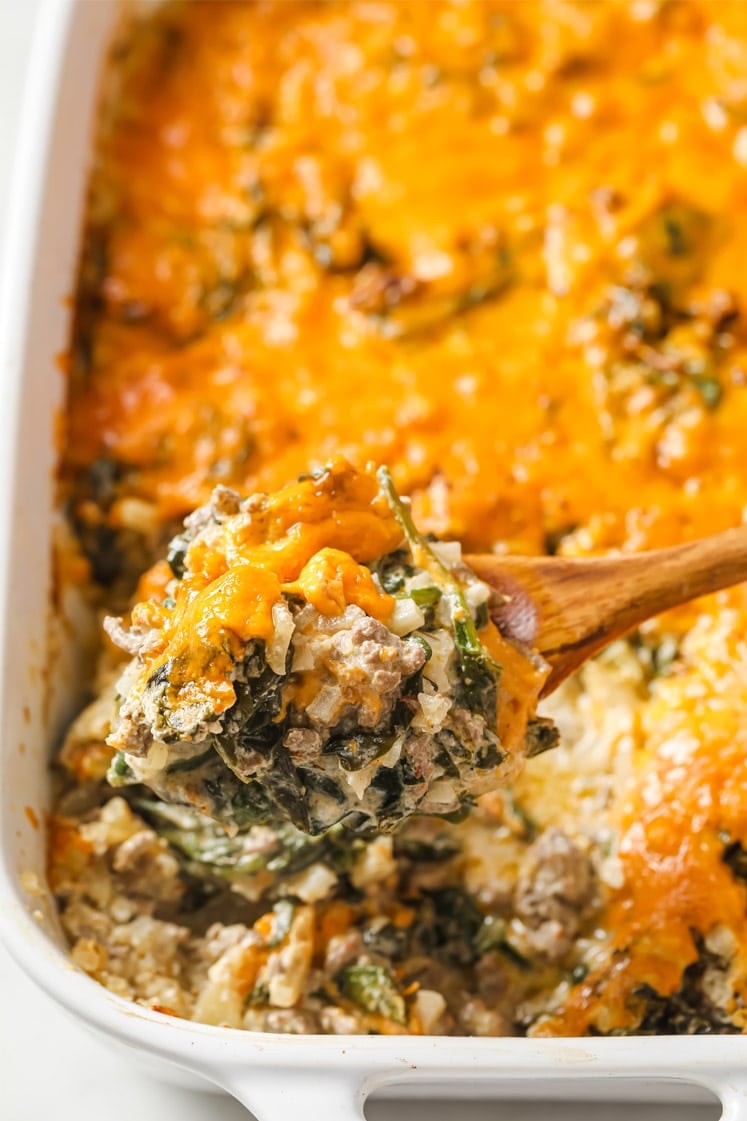


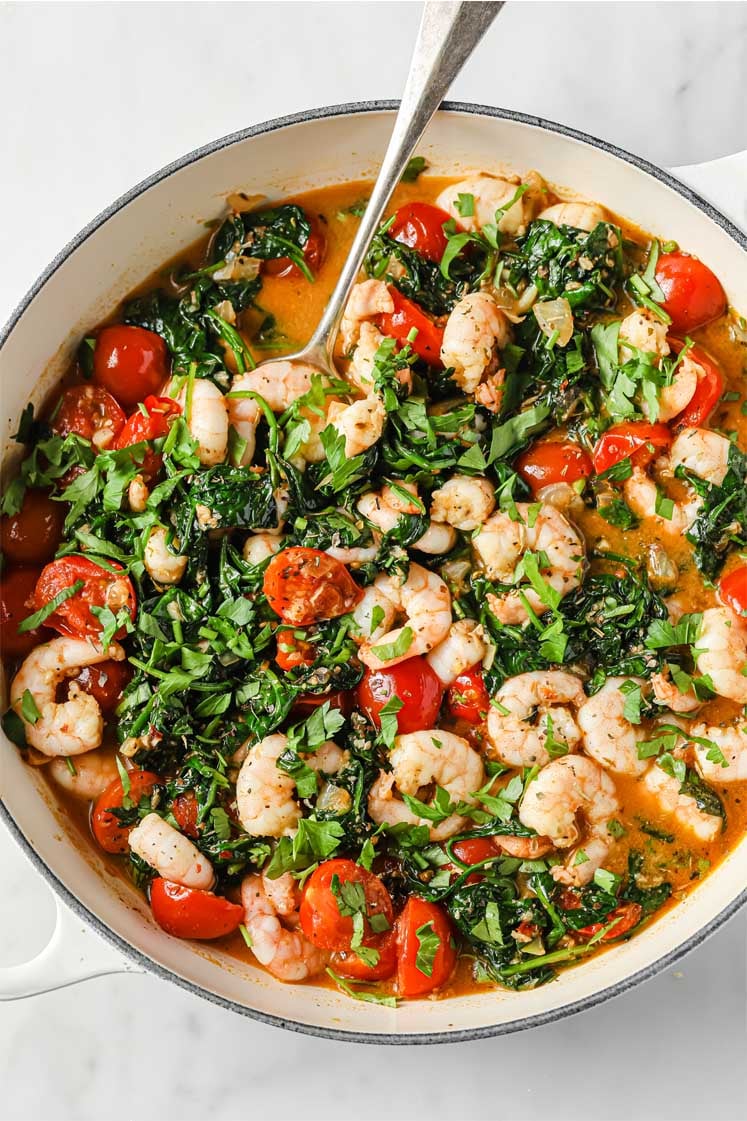

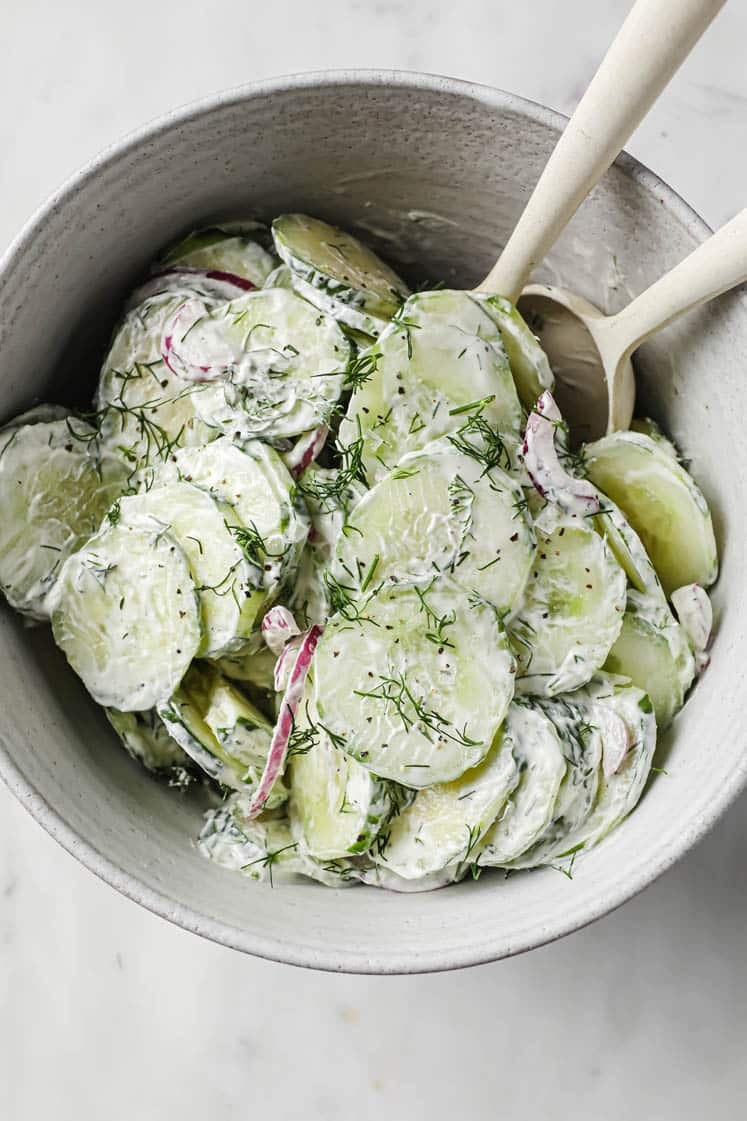









Leave a Reply